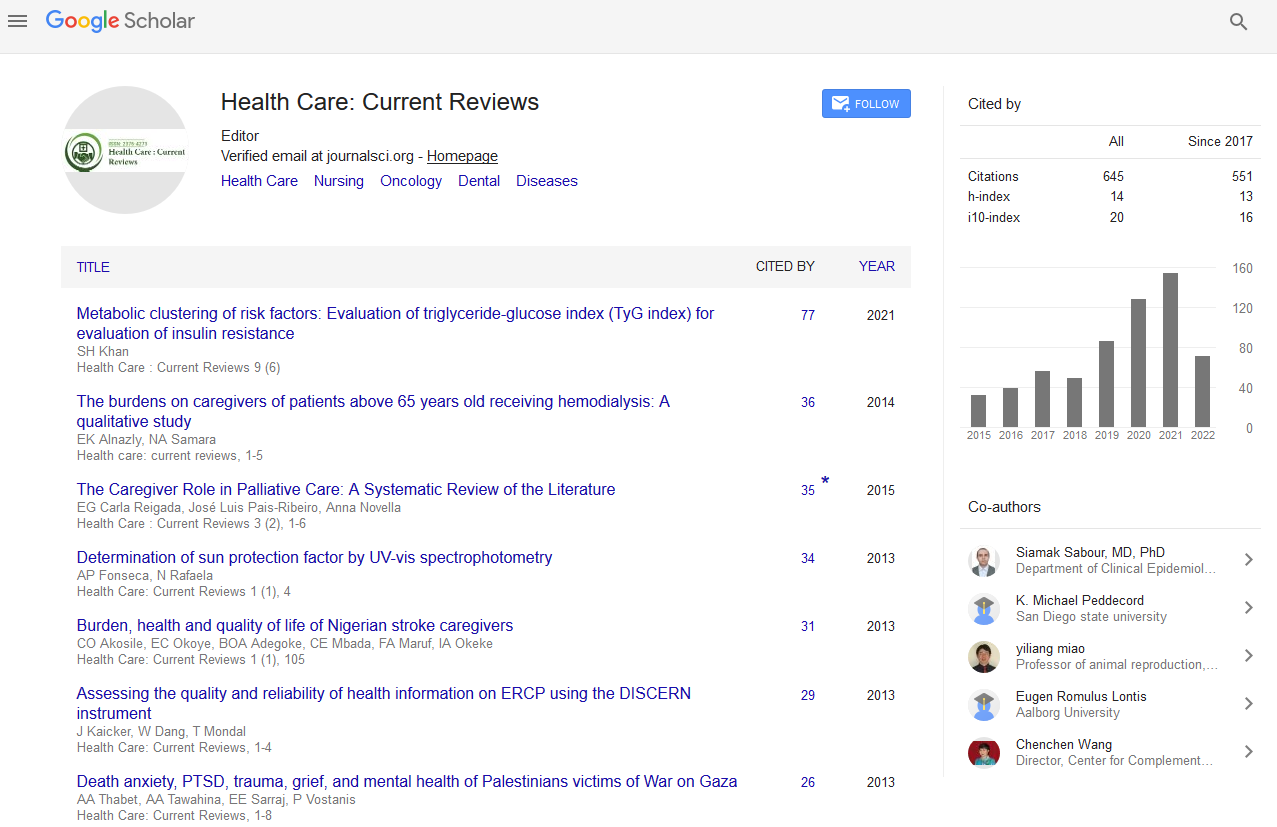PMC/PubMed Indexed Articles
Indexed In
- Open J Gate
- Academic Keys
- RefSeek
- Hamdard University
- EBSCO A-Z
- Publons
- Geneva Foundation for Medical Education and Research
- Google Scholar
Useful Links
Share This Page
Journal Flyer

Open Access Journals
- Agri and Aquaculture
- Biochemistry
- Bioinformatics & Systems Biology
- Business & Management
- Chemistry
- Clinical Sciences
- Engineering
- Food & Nutrition
- General Science
- Genetics & Molecular Biology
- Immunology & Microbiology
- Medical Sciences
- Neuroscience & Psychology
- Nursing & Health Care
- Pharmaceutical Sciences
THE CARTOGRAPHY OF ALTERNATIVE POLICY PATHWAYS: A LEGITIMATE SCIENCE-POLICY MODEL?
Global Health Economics Summit
July 25-26, 2016 Berlin, Germany
Martin Kowarsch
Mercator Research Institute on Global Commons and Climate Change, Germany
Scientific Tracks Abstracts: Health Care: Current Reviews
Abstract:
How can scientific assessments of complex, disputed policy issues be policy-relevant without being policy-prescriptive? The predominant technocratic and decisionist responses to this question misleadingly assume that value-neutral scientific recommendations for public policy means, or even objectives, are possible. On the other end of the spectrum, the literature on democratic and pragmatic models of expertise in policy often does not satisfactorily explain what researchers can contribute to public discourses surrounding disputed, value-laden policy objectives and means. Building on John Dewey�??s philosophy, I develop the �??pragmatic-enlightened model�?? (PEM) of scientific assessment making, which refines the existing pragmatic models. According to the PEM�??s policy assessment methodology, policy objectives and their means can only be evaluated in light of the practical implications of the means. Learning about the secondary effects, side effects and synergies of the best means may require a revaluation of the policy objectives, for instance, regarding the use of bioenergy for climate mitigation. Following the PEM, assessments would�??based on a thorough problem analysis�??explore alternative policy pathways, including their diverse practical implications, overlaps and tradeoffs, in cooperation with various stakeholders. Such an interdisciplinary cartography of multiple objectives, multi-functional policy means and the broad range of their quantitative and qualitative practical consequences is laborious and faces considerable challenges as well as uncertainty. However, it could make assessments more policy-relevant and less prescriptive, and could effectively support a learning process about the political solution space.
Biography :
Martin Kowarsch heads the working group ‘Scientific Assessments, Ethics, and Public Policy’ (SEP) at the Mercator Research Institute on Global Commons and Climate Change (MCC) Berlin. SEP does research on integrated scientific assessment-making in the context of (environmental) public policy processes, and focuses in particular on the appropriate treatment of, and ethical reflection on, normative issues and multiple stakes therein. He is coordinator of a research initiative by MCC jointly with the United Nations Environment Programme (UNEP) on ‘the Future of Global Environmental Assessment Making’.
Email: kowarsch@mcc-berlin.net


